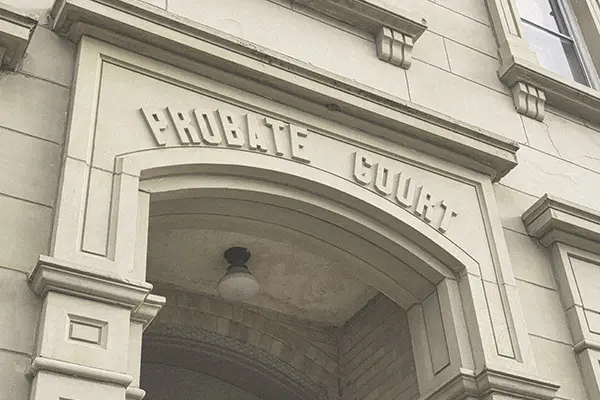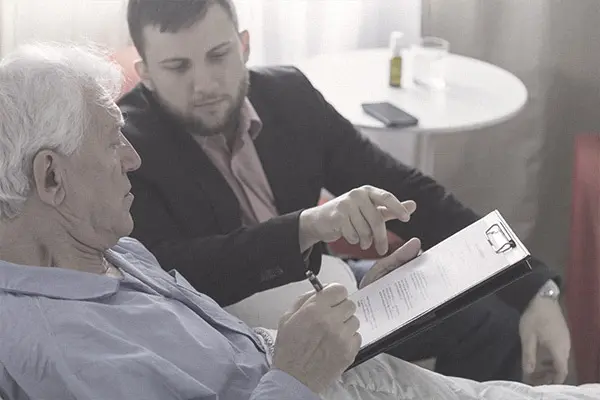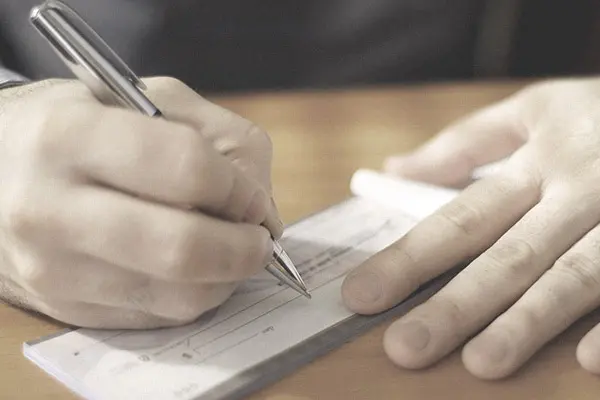Losing a spouse or a parent is a traumatic and emotionally draining experience. Aside from grieving and dealing with funeral arrangements, loved ones must contend with debts, estate assets, and property owned by the deceased. Even if there’s a will, dealing with a decedent’s estate isn’t a simple “open and shut” process. And most of the time people simply don’t know how to sell a house that’s in probate.
Complicating the matter is that every state has different laws about probate. For instance, Investopedia states that Texas waives the probate process if the deceased person’s estate is under $75,000.
In other situations where the deceased had no assets, probate will not be necessary. And if there is no will or heirs, the remaining assets go to the state.
As you can discern, selling a home in probate is a complicated process! This post will demystify “What is probate?” and answer questions like “How can I sell my house fast in probate?”
No matter where you are in the probate process, contact Suburban Cowboys to learn how we can assist you when you’re ready to sell your house fast. In the end, you’ll be knowledgeable and informed to make a wise decision.

What Is Probate?
According to Investopedia, probate is “the process completed when a decedent leaves assets to distribute, such as bank accounts, real estate, and financial investments. Probate is the general administration of a deceased person’s will or the estate of a deceased person without a will.
While this answer is easy to comprehend, the applications, like many aspects of the legal process, branch off into different directions.
Let’s explore these varying tributaries in probate law, so you have a better understanding of the probate process.
Filing: Your First Step
According to LegalZoom, once the will is located, the surviving spouse or family member must file a petition with the probate court for a court hearing “requesting that the will be probated.”
Next, all heirs and beneficiaries must receive notice that the petition has been filed. This allows a family members, other relatives and beneficiaries time to protest the petition or challenge the will.

Appointment of an Executor
The first step the probate courts take will be to appoint an executor. If the deceased left a will, they often listed a named executor. But in cases where a will or an executor was not appointed by the deceased, the court has a confirmation hearing to appoint someone.
If there isn’t a will, the probate process for the estate becomes more complicated, as we’ll explain shortly. But in this initial phase, a “petition is filed seeking administration of the estate, and a notice of administration must be given to all legal heirs.”
The Executor’s Duties
The administrator’s first job is to locate the properties and assets owned by the deceased. This is an easy first step for many, as the estate is limited to one or two properties. But the process is more laborious if your loved one owns homes and property in other counties, states, or nations. And keep this in mind: the longer the duration, the more costly the probate process becomes.
Next, the executor locates and gets appraisals for the estate’s properties then alerts all heirs and beneficiaries that the estate is in probate.
Sometimes, the executor will need to hire a probate attorney to help navigate the legal processes. This is especially true if the courts review the estate and feel it qualifies for Formal Probate, as you’ll see shortly.
Thankfully, the legal system has guidelines the executor must follow before selling probate property to guard against fraud, deception, and greed. That’s the good news. The bad news is that such precautions take time and extra money.
So far, so good, right? It would be if the probate process didn’t split into two additional trails. So, please take a deep breath, and let’s trudge down these paths to learn more about probate sales.
Formal Probate
Formal probate is the most time-consuming process, and according to one law firm, it can take over six months to finalize. It’s a lengthy ordeal because the county probate court must approve every step of the process, of which there are many!
All of which begs the question, “What are the requirements for an estate to go into formal probate?” In abbreviated and laypeople’s terms, the following are some factors:
- The original valid will cannot be located
- Heirs and beneficiaries dispute the validity of the will
- There are competing wills
- There is a dispute over who are the legal heirs
Informal Probate
Informal probate is determined at a court hearing and is the easiest and most cost-effective probate option. The process saves tremendous amounts of time as well as costs because you won’t need a probate attorney or incur probate cost. Obviously, this is everyone’s preferred route because once an estate is declared informal probate, lawyers and court hearings are no longer necessary.
Informal probate is also the perfect time to sell your inherited property! Call us instead of going the traditional route of listing with a real estate agent, making repairs, and wondering when (or if!) the property will sell.
Our friendly associates will relieve you of the anxiety of needing to “Sell my house fast!” with a no-obligation consultation and a top-dollar offer.
Your probate property will qualify for informal probate if it has the following:
- Someone can claim joint tenancy (as in a surviving spouse)
- The property was placed in a living trust
- There is the original will and no contest to its validity
- Without a valid will, there is no dispute regarding who are the legal heirs

Payment of Debts
No matter which probate your estate falls into, all debts and taxes will need to be paid off by the administrator. This may also include medical bills and legal fees. Probate Stars notes that the most significant delay in selling a probate property is the executor not sending a Notice to Creditors.
When done correctly, the process can take up to four months, so you can imagine the delays and headaches heirs and loved ones experience if this step is neglected or forgotten.
Again, every state has different requirements but based upon the 1988 Supreme Court decision, executors in every state must mail a Notice of Creditors to every creditor. In the past, a personal representative to the estate only needed to place an announcement in the local newspaper to alert creditors and family members and satisfy the Notice of Creditors requirement.
Distribution of Assets
Once the above steps have been satisfied, the executor distributes the estate’s assets based on guidelines in the will. The executor must follow the state’s guidelines if there isn’t a will.
LegalZoom estimates that completion of the probate process “could take anywhere from a few months to more than a year (or even years).”

Can You Sell Your Home During Probate?
Now that you better understand the legal ramifications of probate, this leads to the big question: “Can I sell my house during probate?”
The fast answer is yes! But we need to re-examine how Formal and Informal Probate impacts the process.
How to Sell During Formal Probate
As we’ve mentioned, this is the most time-consuming process. To simplify our discussion, we list the steps necessary in laypeople’s terms, but each requires greater scrutiny.
- Real estate must be appraised and follow stringent guidelines established by the courts
- Once appraised, the executor petitions the court to begin the sale
- Sale must be listed as a probate
- Sale must be 90% of the appraised value
- Probate court must review the first offer
- While being examined, the court allows potential buyers to make additional bids on the property
- Probate court supervises the bidding
- Overbidding process must be 105% above the first bid plus $500
- Probate court confirms the final buyer and accepted offer
How to Sell During Informal Probate
The informal probate process is much simpler and faster than the formal process. Once more, here’s a simplified list of how to sell during informal probate:
- Estate executor files the will with the probate court
- Probate court issues Letters of Testamentary; these allow the executor to manage assets and bank accounts
- Executor completes many forms and files with the probate court
- Once finalized, the executor may sell the property without court interference
ProbateStars points out that most states have procedures that beneficiaries can follow to speed up the probate process. For instance, heirs can waive certain rights at the beginning of the process. Additionally, near the end of the probate process, beneficiaries can “waive their rights to receive an estate accounting, which can significantly speed up the ability to close out an estate.”
Sell Your House Fast In Probate
No doubt your jaw dropped reading through the legal jargon and factoring in the time needed to sell a home in probate. And then it dawned on you: “I bet there are expenses like court and lawyer fees.” You guessed correctly, especially if the estate goes into Formal Probate.
But here’s the good news! Suburban Cowboys can relieve stress, reduce time, and save money when your property is ready to sell. While we can’t ease the pain of losing a loved one, we’re here to help you through these challenging days. Reach out to us to learn how our cash offer can satisfy your desire to “sell my house fast in probate!”
Legally speaking, no one may purchase your home before probate. But once the courts have approved the sale, Suburban Cowboys can expedite the process. That’s something you’ll never hear from a realtor!
Suburban Cowboys will give you a free, no-obligation quote for a competitive market value for your home. And unlike what traditional methods of selling require, we will make an offer for your home as is, saving you time and money on expensive repairs.
Additionally, bypassing a real estate agent puts more money in your pocket since you won’t have to pay their commission. And with our cash-in-hand offer, you and your loved ones can move on to more important things.
Unlike the probate court process, Suburban Cowboys can walk you through the process in several days, not months or years. It will feel like a walk in the park after slogging through the rigors of the probate courts.
Call us right now at 615.422.4797 to discuss your probate situation in more detail and how you can get an all cash offer. We’re here to help you move forward with a fresh start and a fair deal, all in a timely manner.


